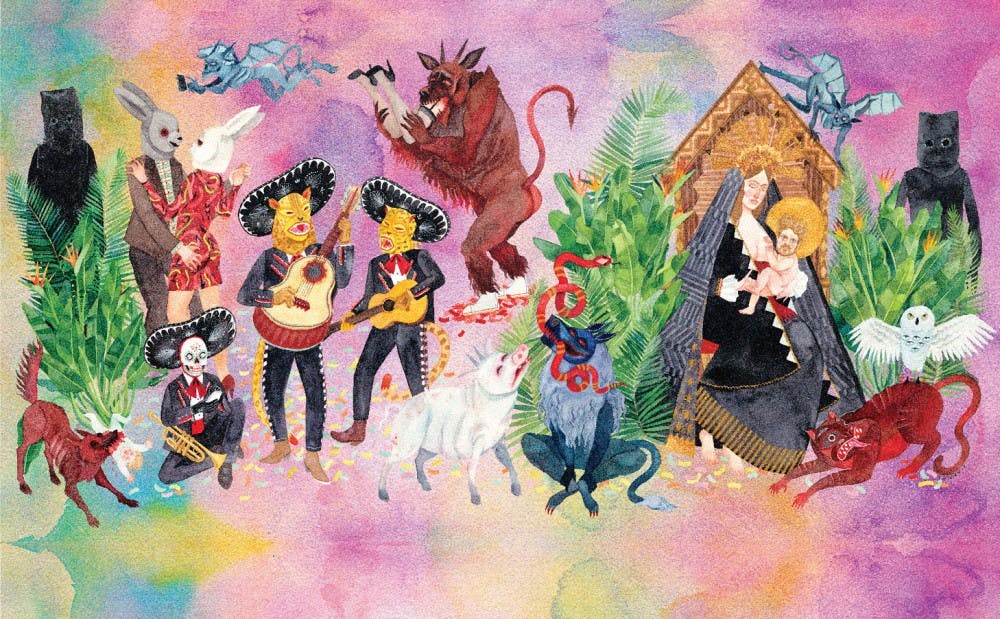Father John Misty’s new album, I Love You, Honeybear, is a rare example of moderation in modern music, standing out from the deluge of pop music releases from in 2015. Misty, known offstage as Joshua Tillman, has remained staunchly separate from the mainstream since his first experimentation with solo work in the early 2000’s, and I Love You, Honeybear continues in the same tradition.
This is hardly to say that Tillman has not changed at all over the course of his career as a solo artist. Tillman’s current sound shares the folk and singer-songwriter roots of his earlier works, such as Minor Works, but over the years he has shed the barren, unadorned style of a hippie under a tree singing about the government. In recent years, Tillman’s style has been built up to include orchestral accompaniments and more complicated studio techniques that remove him from this raw sound, leading to 2012’s Fear Fun.
While hardly a concept album (in that it barely deviates from his recent work) I Love You, Honeybear holds together tremendously. From its titular beginning track to the moving, romantic yet unabashedly unsubtle “When You’re Smiling and Astride Me," Tillman manages to create a sonic portrait that subtly shifts back and forth between new and familiar sounds and eventually ties it all together with the folksy and honest “I Went to the Store One Day."
Apart from “When You’re Smiling and Astride Me," a few other gems stand out from the bunch. “True Affection” is possibly the most distinct, with a digital drum sound that contrasts with the harmonic, ethereal vocals that echo in the background. “Holy S**t”, the penultimate track, recalls the Dylan-esque frustrations of the original folk era, bringing up issues of war, discrimination and self-doubt. However, the song also connotes an inability to cope that matches the disbelief and detachment that many young people feel when considering the huge number of issues that they face every day.
Of course, I Love You, Honeybear isn’t without faults, however slight. In departing from his folk roots, Tillman has moved more towards the ever more popular mid-tempo, reverb heavy rock that has come to include a large part of the indy genre. Ironically, this change brings him closer to other "indie pop" bands like Fleet Foxes, of which he used to be a member. Furthermore, the flow and consistent tone between songs is well-crafted to a fault, creating more of a blend of different sounds rather than distinct songs to all but the most attentive listeners. Overall, Tillman’s most recent album is worth the listen.
Get The Chronicle straight to your inbox
Signup for our weekly newsletter. Cancel at any time.

